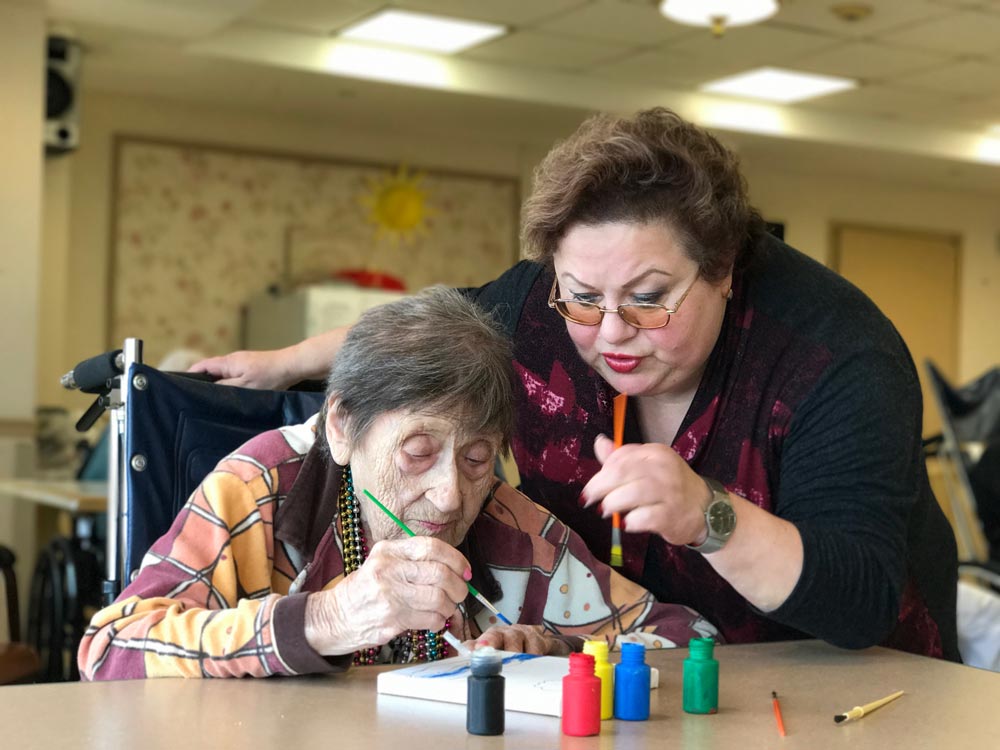Comprehensive Dementia Care Charlotte: Supporting Families with Thoughtful Solutions
Comprehensive Dementia Care Charlotte: Supporting Families with Thoughtful Solutions
Blog Article
Efficient Dementia Treatment Methods for a Better Lifestyle
In the world of dementia treatment, the application of reliable strategies is crucial for improving the top quality of life for both people influenced by the disease and their caregivers. Recognizing the unique stages of dementia enables for customized interventions that address the advancing requirements of patients-- from promoting cognitive engagement in the early stages to ensuring self-respect in late-stage care.
Understanding Dementia Stages

In the very early stage, people may experience mild memory loss and problem with familiar tasks. Care approaches must concentrate on preserving freedom and offering cognitive stimulation. In the late stage, individuals may shed the capability to communicate and need support with daily activities.
Recognizing these stages permits caretakers to adjust their methods and provide support that aligns with the individual's present demands, inevitably promoting far better administration of the problem and improving the overall caregiving experience. Recognizing mental deterioration stages is for that reason a fundamental facet of efficient dementia care.
Communication Strategies
Effective interaction is an essential component of dementia care, specifically as the condition proceeds via its numerous phases. As cognitive capabilities decline, it becomes vital to adapt interaction methods to satisfy the requirements of people with mental deterioration. Using clear, straightforward language is important; caretakers should prevent complicated sentences and jargon, choosing instead for simple, concise expressions.
Non-verbal interaction plays a just as substantial role. Face expressions, gestures, and intonation can convey heat and understanding, commonly enhancing verbal messages. Preserving eye get in touch with and an open posture promotes a sense of connection and security, urging people with dementia to engage more totally in conversations.
It is additionally valuable to hold your horses and enable adequate time for actions. People may call for additional time to process details and create their ideas. Duplicating or putting in other words concerns might be needed if understanding appears doing not have.
Lastly, concentrating on the individual's passions and individual background can promote much more significant interactions. Participating in familiar topics can evoke favorable memories and emotions, further enriching the communication experience (dementia care charlotte). By utilizing these strategies, caretakers can substantially improve the quality of interactions, promoting self-respect and respect for individuals living with mental deterioration
Developing a Safe Setting
Creating a safe environment for people with dementia is essential to advertising their wellness and independence. A properly designed area can considerably reduce the dangers of crashes and enhance the top quality of life for those affected by this problem.
Lights plays a critical duty also; using all-natural light any place possible and integrating evening lights can help individuals browse their environments securely. Additionally, labeling areas and important items can aid memory and alignment, decreasing confusion and stress and anxiety.
It is likewise crucial to develop an acquainted atmosphere by personalizing the space with pictures or my response valued products, which can evoke favorable memories and a sense of belonging.
Incorporating furniture that is both functional and comfortable contributes to a supportive environment, enabling people to involve in daily tasks effortlessly. Inevitably, a secure setting not just safeguards against physical threats however likewise promotes a complacency, which is vital for the emotional wellness of those coping with mental deterioration.
Engaging Routines and tasks
Engaging tasks and structured routines are vital parts in the treatment of individuals with mental deterioration, as they promote cognitive function, psychological stability, and social interaction. These tasks need to be customized to the person's rate of interests, capacities, and stage of cognitive decline. dementia care charlotte. Simple, repeated jobs such as horticulture, crafts and arts, or food preparation can supply meaningful interaction, allowing individuals to utilize their skills while fostering a feeling of accomplishment
Developing a day-to-day regimen aids produce a foreseeable atmosphere, which can reduce anxiety and confusion. This framework can consist of assigned times for meals, activities, and remainder, making sure a balanced approach to day-to-day live. Incorporating social communications into these regimens, such as team tasks or visiting household, additional improves psychological well-being and deals with feelings of seclusion.
In addition, exercises, such as dancing or strolling, not just promote physical wellness yet likewise boost mental interaction. Encouraging participation in neighborhood events or support teams can provide additional possibilities for socialization. On the whole, the assimilation of interesting tasks and organized routines is crucial in improving the lifestyle for people with mental deterioration, fostering independence and self-respect while resolving their distinct needs.
Supporting Caregiver Well-Being
Looking after people with mental deterioration can be a demanding and mentally tiring experience, making it necessary to you can look here focus on the well-being of caregivers. Caretakers often encounter high degrees of anxiety, anxiousness, and physical fatigue, which can bring about fatigue if not addressed suitably. To support their health, it is vital to execute a diverse technique.
First, giving caregivers with accessibility to education and learning and resources can encourage them with strategies to take care of day-to-day obstacles. Support teams, both in-person and online, provide a system for sharing experiences, fostering a sense of neighborhood, and lowering feelings of isolation. Additionally, respite care services enable caretakers to take essential breaks, permitting them time to go to and charge to their own health needs.
Furthermore, motivating caretakers to participate in self-care methods-- such as routine workout, healthy and balanced eating, and mindfulness-- can significantly improve their resilience. Advertising open interaction regarding their feelings and difficulties with family members or specialists likewise helps minimize emotional worries.
Conclusion
To conclude, effective mental deterioration care approaches encompass a detailed understanding of the illness's stages, the application of clear communication methods, the establishment of a risk-free setting, and the promo of engaging activities and structured routines. Furthermore, prioritizing the wellness of caretakers is important to maintaining quality treatment. By integrating these methods, the total lifestyle for individuals with mental deterioration can be substantially improved, fostering an encouraging environment that promotes dignity and psychological wellness.
In the realm of mental deterioration care, the execution of effective strategies is essential for boosting the quality of life for both people impacted by the condition and their caregivers. By employing these strategies, caretakers can dramatically enhance the top quality of interactions, advertising dignity and regard for people living with mental this deterioration.

Caring for individuals with mental deterioration can be a demanding and mentally taxing experience, making it critical to prioritize the wellness of caregivers.
Report this page